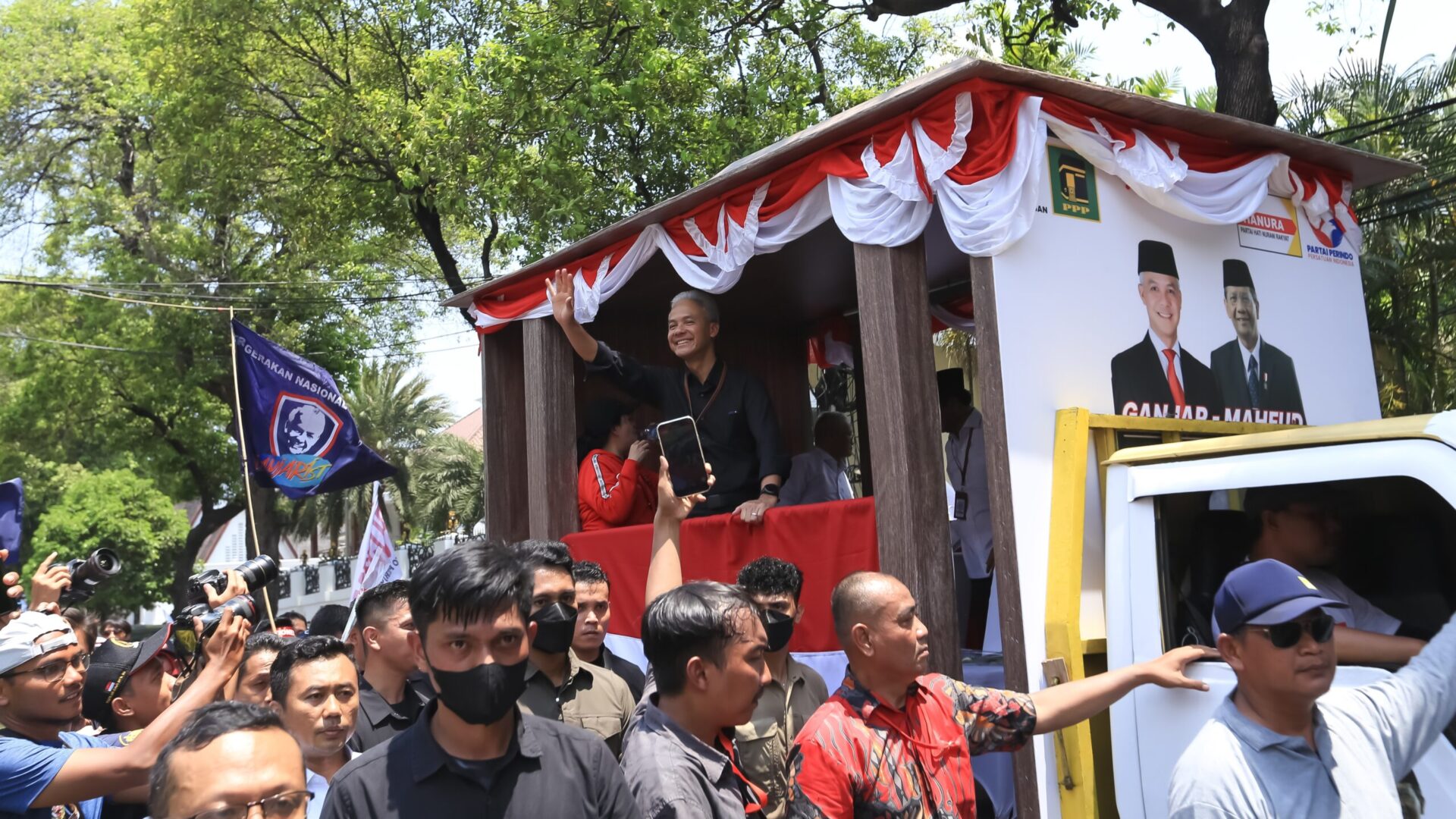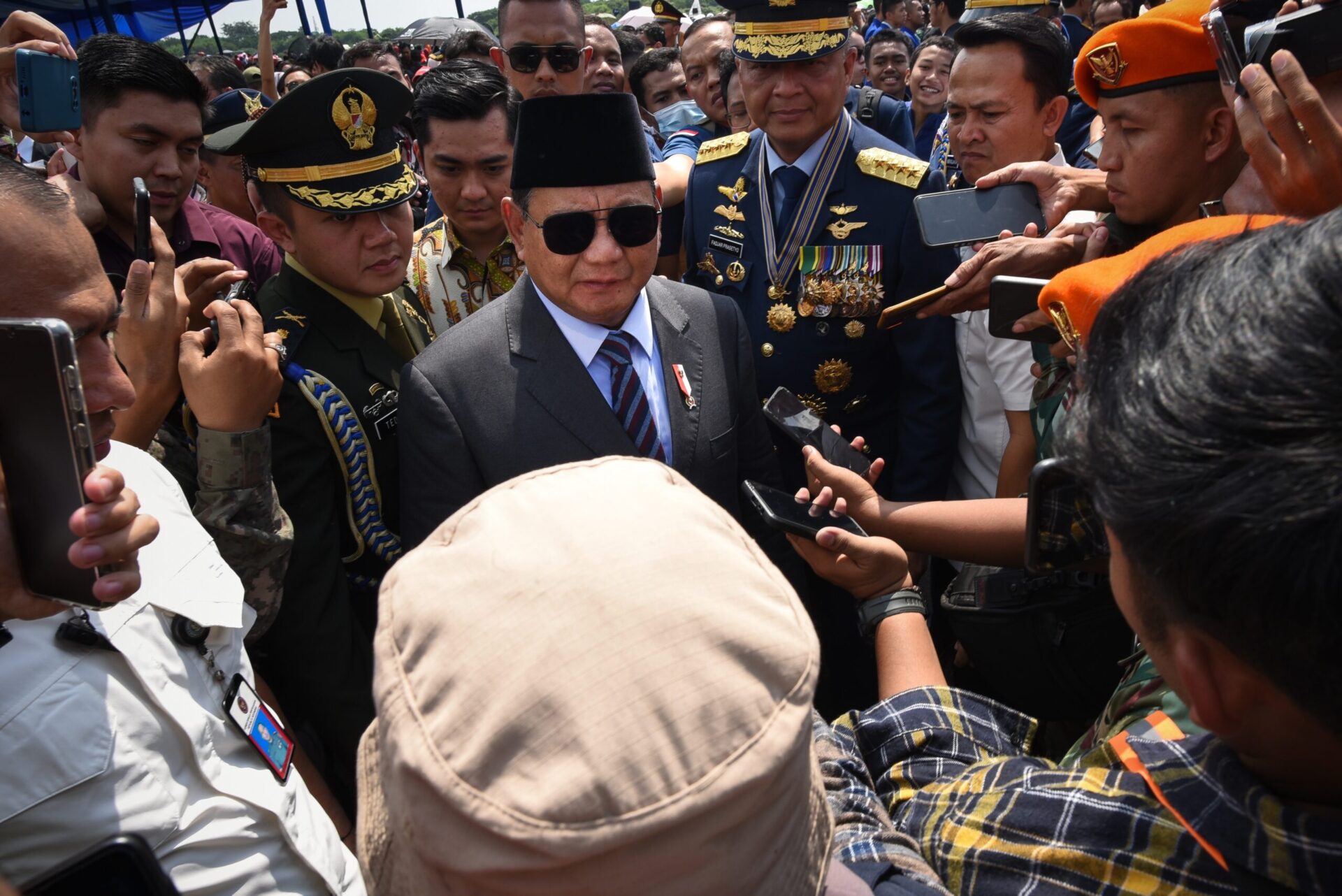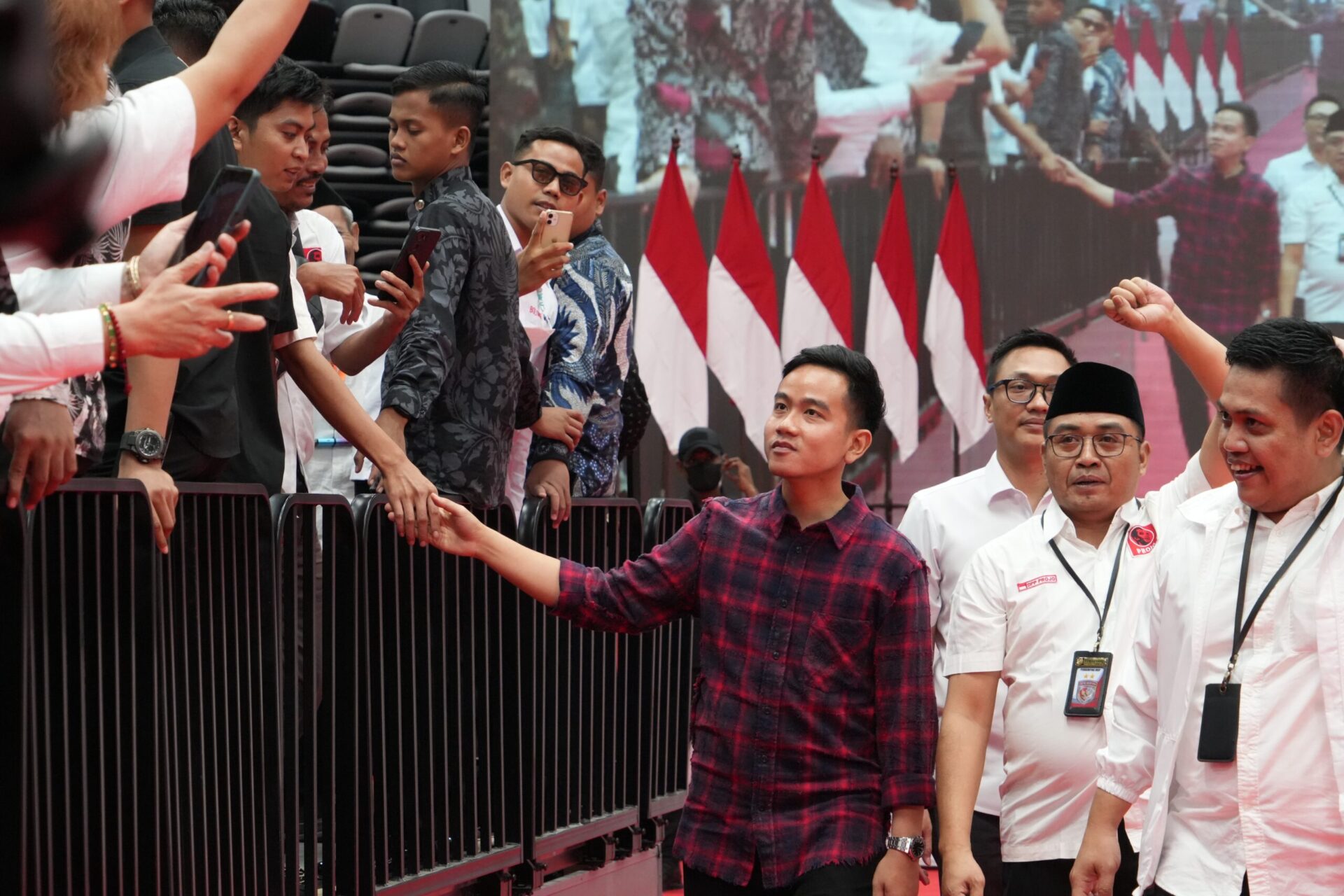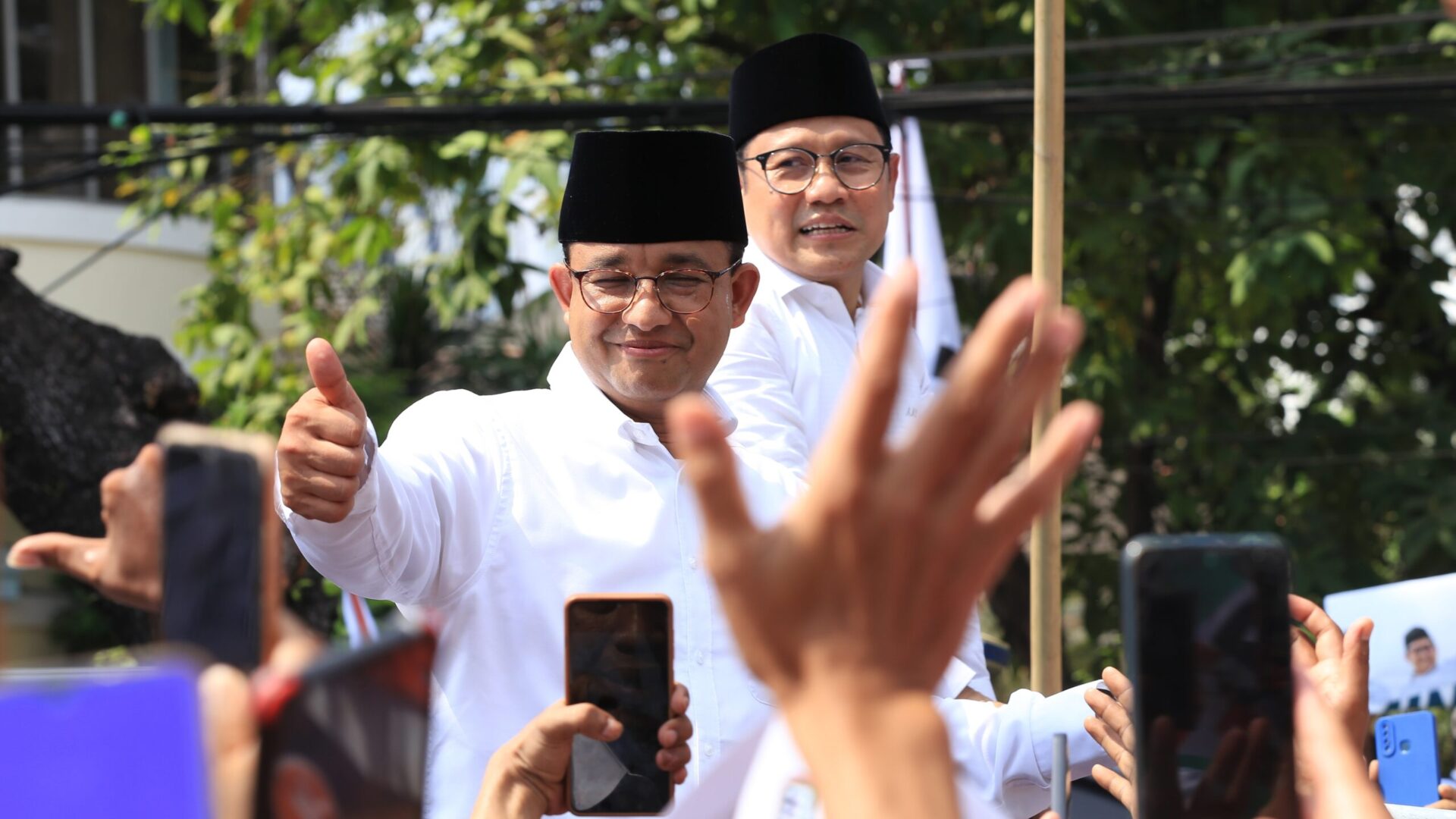Driving commercial and political engagement between Asia, the Middle East and Europe
Driving commercial and political engagement between Asia, the Middle East and Europe
Driving commercial and political engagement between Asia, the Middle East and Europe

Ahead of the upcoming Indonesian presidential elections, Joanna Octavia, Head of Programming at Asia House, identifies the critical issues at stake and analyses the areas of focus for the economy.
Key messages:
The race is on: Southeast Asia’s largest economy is going to polls this February. With current Indonesian President Joko Widodo constitutionally barred from running a third term, businesses are closely watching the presidential race for insights into the country’s future economic trajectory.
Key issues on the radar include the candidates’ approach to infrastructure projects and investment incentives. Additionally, the candidates’ stances on foreign policy and strategies for energy transition are of paramount interest to both domestic and international business communities.
Three potential presidents, three scenarios for 2024
Unlike the past two presidential elections in 2014 and 2019, the elections in 2024 will see three candidates vying for presidency: Ganjar Pranowo, Prabowo Subianto, and Anies Baswedan.
Ganjar Pranowo: a PDIP veteran from humble beginnings

Ganjar Pranowo (centre) on the campaign trail
Ganjar Pranowo is a stalwart of PDI Perjuangan (PDIP), one of Indonesia’s largest political parties, and is most recently a two-term governor of Central Java. His candidacy is strengthened by the influential support of PDIP chair and heiress Megawati Sukarnoputri, whose father is widely respected as the founding president of Indonesia. The backing of Megawati, who was a former president herself, significantly boosts Ganjar’s chances in the election, given PDIP’s strong political influence and large voter base.
Ganjar’s rise in the political arena shares certain similarities with Jokowi’s path to presidency in 2014. Much like Jokowi, Ganjar was initially known primarily on the regional level, but his charisma and personal appeal quickly propelled him into the national spotlight. However, given his loyalty to PDIP, it is widely expected that the party’s influence over government policies and priorities will be pronounced under a Ganjar-led administration. Increased PDIP influence may also mean that core members and allies of PDIP are likely to dominate cabinet positions – reminiscent of Jokowi’s first cabinet line-up in 2014.
The selection of Indonesia’s senior security minister Mahfud MD as Ganjar’s running mate is a strategic move by PDIP aimed at garnering support from Indonesia’s populous Muslim majority. In a country where faith is deeply ingrained in daily life, winning the votes of religious communities in densely populated regions can sway election outcomes. Securing victory in East Java – one of Indonesia’s most populous provinces and a stronghold of the Nahdlatul Ulama (NU) – is seen as key to winning the presidential election. Mahfud, who is also the former chief justice of the Constitutional Court, is closely affiliated with the NU, a prominent Islamic organisation in Indonesia. He was educated at an NU-run Islamic school and involved in NU-related organisations, such as NU’s youth wing GP Ansor.
Prabowo Subianto: from two-time enemy to ‘Jokowi’s man’

Prabowo Subianto (centre) on official duty as Minister of Defence
Prabowo Subianto, the incumbent Minister of Defence, is a former army lieutenant general and was previously the son-in-law to Indonesia’s former President Suharto. His bid in the 2024 elections marks his third attempt at the presidency. Having publicly committed to uphold Jokowi’s policies, Prabowo demonstrates an intent to capitalise on the success of the current administration and secure the support of voters who have been satisfied with Jokowi’s governance. Despite Prabowo’s checkered past and human rights record, his public image has successfully undergone a significant transformation, aided in part by accepting a cabinet position upon his 2019 election defeat. Analysts have further commented that Prabowo’s new social media persona and changes in tone during speeches have been a deliberate campaign to change his image ahead of the 2024 elections.
Although Prabowo has the backing of the most extensive coalition of political parties, securing a parliamentary majority doesn’t guarantee success in Indonesia’s presidential election, as the head of state is directly elected by the people. It’s crucial to acknowledge that supporters of political parties may not always vote for the presidential candidate endorsed by their party. An example is the 2014 election when Prabowo’s coalition secured a parliamentary majority but ultimately lost the presidential race to Jokowi.

Prabowo’s vice presidential running mate Gibran Rakabuming Raka (centre), eldest son of current President Joko Widodo
Choosing Gibran Rakabuming Raka, the eldest son of Jokowi and the current mayor of Surakarta, as Prabowo’s running mate is a clear signal by Prabowo’s camp to associate its presidential bid with the successes of Jokowi-era programmes and policies. While some interpret Gibran’s candidacy as evidence of Jokowi’s involvement in dynastic politics, it’s also perceived as a snub to PDIP, the party that both supported Jokowi’s presidential bids and backed Gibran when he ran for mayor. In an effort to retain influence beyond his presidency, Jokowi too appears to be weighing his options amidst a growing discord with PDIP chair Megawati, whose support arguably launched his career in politics.
The nomination of Gibran as his vice-presidential candidate is likely to win Prabowo votes from Central Java – where Jokowi’s family is originally from – and shift the support of Jokowi’s supporters from Ganjar and PDIP to the Prabowo camp. While Gibran’s lack of affiliation to NU-based organisations may cost the Prabowo-Gibran ticket the NU support, it is also worth noting that the NU leaders strongly support Jokowi, further bolstering the president’s influence in the upcoming elections.
Anies Baswedan: Jokowi’s antithesis

Anies Baswedan (left) with Vice Presidential running mate Muhaimin Iskandar
Anies Baswedan is the former Minister of Education in Jokowi’s first cabinet and was Governor of Jakarta from 2017 to 2022. Anies’ path to power during the 2017 Jakarta gubernatorial elections was marred by accusations of courting hardline Islamic groups amid blasphemy accusations against Basuki Tjahaja Purnama, the incumbent ethnic Chinese Christian governor, who is better known as Ahok. Anies ultimately seized victory in the closely contested and highly polarised political battle, while Ahok, a known ally of Jokowi, was incarcerated for blasphemy after a widely publicised post-election trial.
Anies has launched a policy platform based largely on issues such as good governance, institutional reforms, and corruption eradication, primarily targeting urban and educated middle-class voters. He has fashioned himself as a progressive change to the Jokowi-era administration, for instance by alleging that Jokowi’s national strategic project programme was laden by vested interests. Nevertheless, Anies’ opposition stance has made him seen to be the candidate least capable to continue Jokowi’s programmes, a likely downside as the majority of the public prefers the incoming president to continue with the current government’s initiatives.
Anies has chosen Muhaimin Iskandar, the head of the Islam-based National Awakening Party who has close ties to the NU, as his vice-presidential candidate. While the selection of Muhaimin was thought to help Anies win votes in East Java, opinion polls for the region after his candidacy was announced indicate that native-born Muhaimin still trailed behind Mahfud MD and Gibran, Ganjar’s and Prabowo’s running mate respectively, in popularity.
Infrastructure, investment climate, and economic policies
The risks associated with political transitions and potential changes in government policies and line-up often lead investors to postpone major financial decisions until the post-election business environment becomes clearer. To meet the concerns of the business community, the Indonesian government introduced regulations, such as the Nusantara Capital City Law (UU IKN), to ensure the project’s continuity despite the anticipated leadership change.
Echoing Jokowi’s 2014 campaign promise, Ganjar-Mahfud has set an ambitious growth rate of 7 per cent. In line with Jokowi’s desire for a successor who can continue his policies, Ganjar has promised to continue Jokowi’s administration’s downstreaming policy and expand it to other sectors such as plantations and marine. Unlike Jokowi, however, Ganjar is not a businessman and has not shown clear support for big business, instead demonstrating an affinity for small and medium enterprises, which is in line with PDIP’s pro-poor, pro-people agenda. Where big businesses sit within Ganjar’s economic agenda will largely depend on his inner circle and the people he appoints to his cabinet, which may include a combination of PDIP loyalists and trusted professionals.
Among other campaign pledges, Prabowo has promised to continue Jokowi’s downstreaming policy and the construction of the new capital city – two of Jokowi’s most important legacies. Prabowo’s coalition and supporters stand to benefit from the projects started under Jokowi’s administration, many of which are centred around infrastructure development, connectivity, and mining. Among his most ardent supporters are toll road tycoon Jusuf Hamka, as well as his own brother Hashim Djojohadikusumo, the founder of one of Indonesia’s richest conglomerates. There is clear commercial interest and reasoning for continuing the trajectory Jokowi has started, and it is expected that pro-business policies will dominate Prabowo’s economic agenda.
Meanwhile, Anies has publicly voiced criticisms of Jokowi’s projects and questioned the rationale behind the plans for a new capital city. His presidency would therefore see a review of Jokowi-era mega-projects, which may affect many infrastructure initiatives including those backed by foreign partners. Despite these potential changes, Anies is expected to maintain a downstream trajectory while also prioritising the reindustrialisation of the economy and drawing foreign investment to less-developed provinces and areas. In line with Jokowi’s presidency’s average growth rate, Anies-Muhaimin has set a realistic target of 5.5-6.5 per cent annual economic growth rate.
Foreign policy
Indonesia’s foreign policy has traditionally been closely linked to the leadership style and priorities of the incumbent president. For example, former president Susilo Bambang Yudhoyono placed a significant emphasis on Indonesia’s foreign policy, whereas President Jokowi has prioritised domestic concerns.
Despite the inconsistency, Indonesia’s presidency of the G20 in 2022 and more recently chairmanship of ASEAN in 2023, have demonstrated the government’s desire to combine its evolving role in international affairs with its national economic interests. For instance, there is significant government support for the development of an ASEAN regional EV supply chain, of which Indonesia, with its vast nickel reserves, is slated to become a major player.
It is expected that economic-driven foreign policy will not change significantly under either Ganjar or Prabowo. Both Ganjar and Prabowo have expressed a desire for establishing closer ties with China, Indonesia’s largest trading partner. A trade and investment-driven approach to foreign policy may mean increased engagement and closer ties with China as well as with other trading partners, such as the United Arab Emirates and other GCC countries.
Where Ganjar and Prabowo may diverge is in their public stance concerning defence and diplomacy issues. Ganjar, given his lack of international experience, will likely depend on the institutional machinery and well-seasoned diplomats of Indonesia’s foreign affairs ministry to continue Jokowi’s administration’s line of non-alignment and neutrality.
On the other hand, it is likely that Prabowo’s military background may inadvertently influence his approach to foreign policy. The incongruence of Prabowo’s Russia-Ukraine peace plan with Indonesia’s official diplomatic stance indicates that the presidential nominee is likely to develop his own stances on defence and diplomatic issues. As a former general and defence minister, Prabowo is expected to prioritise Indonesia’s national sovereignty in its resource-rich maritime territory, especially in the face of China’s growing presence in the North Natuna Sea and “nine-dash line” claim. This requires a delicate balancing act between protecting national interests and maintaining a positive relationship with the country’s second largest investor.
Meanwhile, Anies Baswedan has announced his vision for a values-driven foreign policy for Indonesia should he win the upcoming elections. Anies has criticised President Jokowi’s transactional approach to foreign policy which prioritises trade and investment, leading to reluctance in criticising Russia during its conflict with Ukraine. Having studied and worked in the United States, Anies has exhibited more proactive engagement in fostering relations with the Western world compared with his two rivals. This approach may resonate with segments of the public who have been critical of the government’s perceived pro-Beijing tilt.
The three candidates are expected to maintain Indonesia’s non-diplomatic stance with Israel amidst the escalating conflict in the Middle East. Earlier this year, Ganjar, along with several other politicians, announced his opposition to Israel’s participation in the men’s Under-20 World Cup, which Indonesia was due to host. The pushback resulted in Indonesia losing its hosting rights for the 2023 tournament – a move that frustrated many football fans in the country.
Energy transition
Reflecting the international sentiment on energy transition and sustainability, Anies’ policy platform includes a pledge to incentivise renewable energy investment and phase out coal power plants. Given his leanings, Anies may focus more on pursuing more collaborations with companies in the West. This was exemplified through his visit to a number of European countries during the final months of his Jakarta governorship tenure, where he witnessed the signing of green public transportation deals. Furthermore, Anies’ fewer ties with Jakarta’s business elites in the electric vehicle business, coupled with his stance against the subsidies for private electric cars, underlines a potential shift in priorities and policies regarding sustainable urban transportation in his leadership.
Both Ganjar and Prabowo are expected to maintain Jokowi administration’s focus on a market-oriented approach to energy transition. The Ganjar-Mahfud ticket is aligned with influential figures deeply rooted in the industry, such as Arsjad Rasjid, Ganjar’s national campaign team chief and CEO of one of Indonesia’s largest integrated energy companies. Rasjid has previously called on developed nations to provide capital and share technology to help emerging countries quit coal, in line with Ganjar-Mahfud’s policy platform pledge to prioritise the development of renewable energy and green financing.
Meanwhile, Prabowo, an elite in Jakarta’s tight-knit circle of tycoons, politicians, military officers and government officials, has his own connections to coal businesses. If he is elected to office, these connections and deeply embedded networks will influence how he coordinates energy transition policies and coal businesspeople.
Jokowi’s legacy
Being the first president elected from outside of the ruling establishment, Jokowi enjoys significant popularity among the electorate, with most surveys putting his rating between 70 and 80 per cent. This places him in a prime position to be a kingmaker in the upcoming presidential elections, as his endorsement will carry a stamp of credibility and trust for his preferred candidate.
Central to this consideration is Jokowi’s concern over the continuity of his legacy. The president has openly admitted that he will ‘meddle’ in the upcoming elections, citing it his ‘moral obligation’ to ensure a smooth transition of power. The participation of his son Gibran as Prabowo’s running mate adds a layer of complexity to the political landscape, raising questions about dynastic influence and the intricate interplay of familial ties in the upcoming elections. Jokowi’s youngest son, 28-year-old Kaesang Pangarep, was recently selected as chair of the youth-focused non-parliamentary party Partai Solidaritas Indonesia (PSI), while 36-year-old Gibran’s candidacy was made possible after the constitutional court – where his uncle is the chief judge – ruled in favour of waiving the minimum age requirement of 40 to seek the presidency or vice-presidency if an individual has held elected regional office.
With just four months left until the February 2024 elections, public sentiment may continue to shift and fluctuate, especially with recent public backlash against the controversial court ruling in support of Gibran’s candidacy. However, according to a recent nationwide poll conducted by Lembaga Survei Indonesia (LSI) between 16-18 October, Prabowo is currently still in the lead at 35.8 per cent, while Ganjar and Anies trail at 30.9 per cent and 19.7 per cent respectively. In the hypothetical scenario of a second round, the polls predict Prabowo to surpass Ganjar by 16 per cent.
Regardless of the winner, it remains highly likely that there will be more continuity than change for the business community – partly due to the success and popularity of Jokowi’s presidency and his deliberate interventions to ensure that his legacy survives beyond the past decade.
Asia House provides a range of services to help organisations navigate complexities in Asia and the Middle East. For more information please contact Katie Reid, Stakeholder Engagement Associate: katie.reid@asiahouse.co.uk
